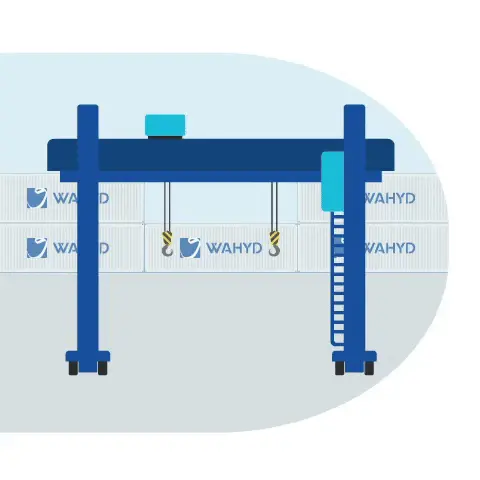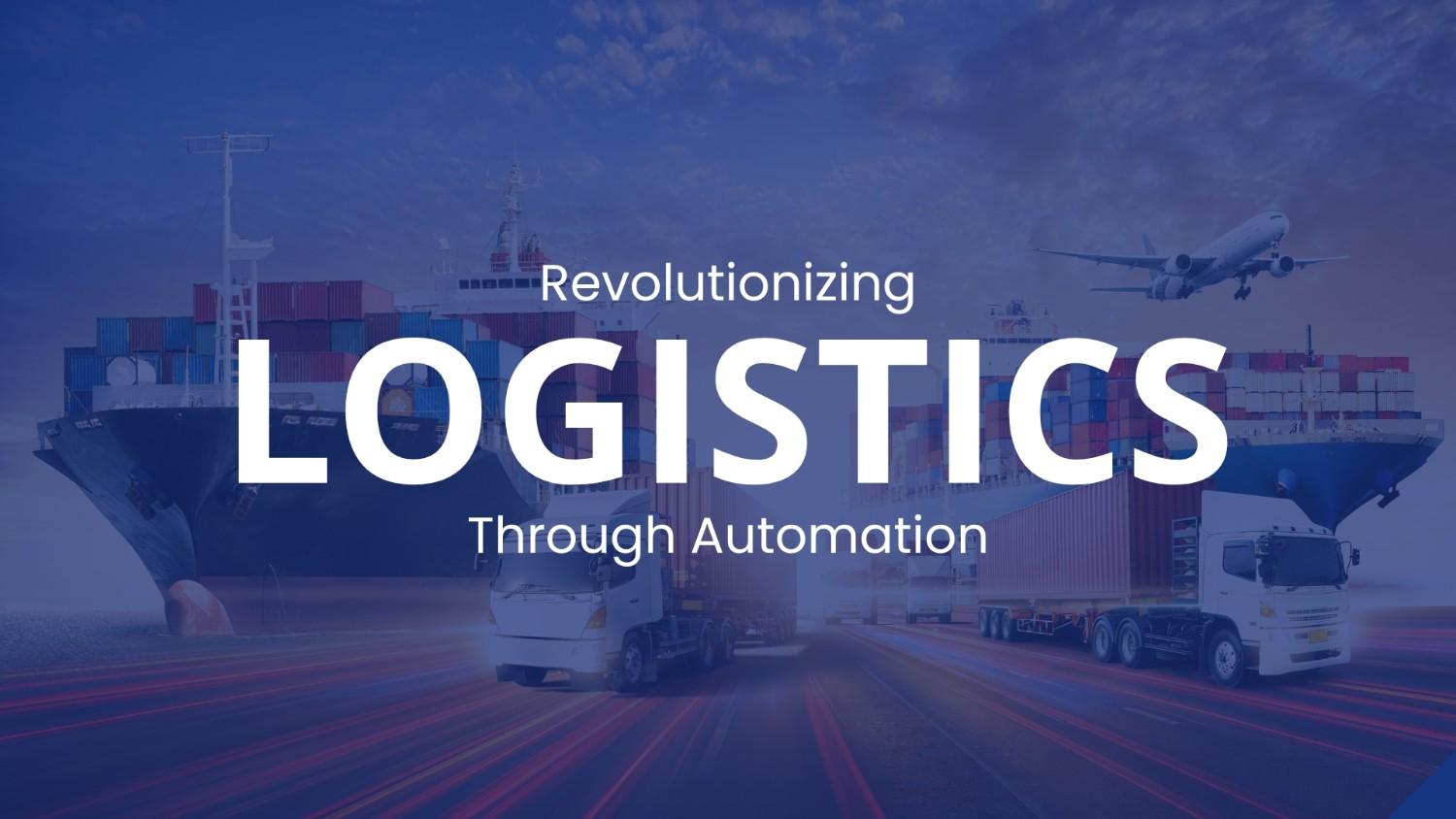
Trucking in the Middle East is a major contributor to the region’s economy. It’s capable of transporting items over long distances linking ports to inland regions and it promotes trade between various countries too. Nonetheless, this doesn’t mean that every road is something good out there. There are specific challenges faced by truck drivers in this region which slow down their operations, raise expenses, and cause other inconveniences both for firms as well as for the operators themselves. Luckily enough technology brings solutions to these problems; it increases effectiveness, and security and generates more income. In this educational blog post, we’ll address 5 major difficulties affecting the trucking business in the Middle East and how new technological developments can assist us in overcoming such troubles.
1. Complex and Unpredictable Border Crossings
Logistics in the Middle East are often delayed and disrupted because of the complexities and unpredictability of border crossings. Trucking companies face many challenges such as different regulations, customs procedures, and political tensions that require navigation through all these factors.
Challenge:
Border crossings in the Middle East, especially between countries with long borders like Saudi Arabia, UAE, Jordan, and Iraq are often unpredictable. Long customs queues; varying rules on trade; and unnecessary paperwork can leave trucks idling at the border for hours. This not only disrupts transport schedules but also results in extra costs as a result of parked trucks wasting fuel and loose man hours.
How Technology Can Address This Challenge:
How cross-border freight is managed has been revolutionized by smart logistics platforms. The systems provide real-time information about the condition of borders so that drivers are aware of possible delays in waiting and capacity. You can reduce the amount of paperwork that needs to be done significantly through automated customs clearance software, which digitizes the process, ensuring all relevant documentation has been processed even before the truck gets to the border. Moreover, these platforms also help drivers stay in compliance with current regulations, thus preventing any expensive delays incurred due to non-compliance.
Examples of Technology-Driven Solutions:
- Automated Customs Platforms: Streamlines paperwork and compliance.
- Real-time GPS Tracking: Provides insights into border congestion, allowing dispatchers to make informed routing decisions.
2. Driver Shortage and Retention Problems
An escalating driver shortfall confronts Middle Eastern trucks causing many problems and hence increasing demand is difficult to meet. It is equally challenging to keep talented drivers as there are high turnover rates as a result of unfriendly working conditions and competitive job markets.
Challenge:
Currently, there exists a significant gap in skilled drivers, this not only applies to the Middle East but also worldwide. Additionally, harsh working conditions hamper their activities such as long hours spent alone and physical need for labor. A lot of them just quit their jobs thus making it necessary always to have fresh blood in terms of recruitment and training.
How Technology Can Help Resolve This Issue:
Information technology is aimed at reducing some burdens on drivers making their work less stressful and safer. Driver assist systems such as adaptive cruise control, lane departure warnings, and fatigue detectors are vital in reducing accidents and fatigue. These systems not only minimize risks but also help retain drivers because they make them comfortable.
The use of driving simulators for training purposes is another technological approach being used to deal with the shortage of drivers. These are the systems that provide an experience close to reality when it comes to training without participating or involving any inexperienced person in real-life situations of operating a truck. Closure of skill gaps together with speedy training may be realized thereby improving road confidence while maintaining safety standards.
Technology Solutions in Action:
- Driver Assist Systems: Helps improve driver safety and comfort.
- Training Simulators: Provide effective and safe driver training solutions, reducing the skills gap.
3. Escalating Operational Expenses

The road transport sector in the Middle East faces a big obstacle: rising operating costs that affect profit and sustainability. Fuel expenses, maintenance costs, and compliance with regulations cause high expenses; so, there is a need for appropriate means of managing them effectively to lessen the burden.
Challenge:
The gains of trucking firms can be eaten away by fuel expenses, upkeep of vehicles, and road tolls. This is more prevalent in the Middle East where trucks are required to move over long distances under tough conditions causing them to suffer from more wear and tear. Also, increasing operational costs are caused by route planning inefficiencies as well as vehicle loading problems.
How Technology Can Help Reduce These Costs:
Due to the fuel management systems and the routing software, trucking companies are witnessing a significant change. These solutions assist businesses in locating their ultimate fuel-efficient routes through real-time analysis data which removes unnecessary mileage and idle time on roads.
Drivers can then extend the longevity of their automobiles by conducting predictive maintenance checks via vehicle health monitoring programs when they send alerts to fleet managers about breakdowns in good time before they actually happen.
Besides, vehicles fitted with Internet of Things (IoT) sensors can trace fuel usage patterns, driving habits, and truck performance status through telemetry. With these statistics at hand, firms can make informed decisions aimed at minimizing wastage through enhanced truckload optimization systems that aim at maximizing revenues while reducing overheads.
Technology Solutions in Practice:
- Fuel Management Systems: Minimizes fuel consumption through smart tracking and analysis.
- Predictive Maintenance Tools: Reduces breakdowns and optimizes vehicle lifespan.
- Route Optimization Software: Ensures the most efficient routes are taken to save costs.
4. Safety and Security Concerns
The trucking industry in the Middle East is greatly affected by safety and security issues as it faces risks such as theft to accidents on rough roads. It demands different strategies and dependable answers to guarantee drivers, merchandise, and trucks’ security and protection.
Challenge:
In the Middle East, the trucking industry faces a huge problem regarding security, especially in politically volatile regions prone to conflict. There are cases of truck theft, hijacking, or vandalism. The drivers can also be put at risk if they have an accident during their trips or their vehicles break down in isolated places because this will cause long and costly stoppage times.
How Technology Can Help Overcome These Safety and Security Challenges:
Real-time GPS tracking has brought about significant enhancements in truck and cargo security, together with geofencing and advanced surveillance systems. Through geofencing, companies can create digital borders around specific areas and get notified whenever a truck flies off its way or steps into a no-go zone. Fleet managers can track trucks in real-time to monitor their movements as well as detect unusual behaviors while dash cams and onboard security systems offer extra security measures.
As far as driving safety is concerned, driver monitoring systems using AI can alert drivers showing signs of falling asleep or being distracted hence averting crashes. If an accident happens, emergency response features attached to the truck’s onboard computer would automatically notify related parties ensuring swift assistance during emergencies.
Innovative Technology Solutions for Safety and Security:
- Geofencing and GPS Tracking: Enhances security by tracking vehicle movements and alerting authorities to unusual activity.
- AI-based Driver Monitoring: Helps prevent accidents by monitoring driver alertness and behavior.
- Emergency Response Systems: Ensures quick action in case of accidents or theft.
5. Reducing Environmental Impact and Promoting Sustainability
The Middle Eastern trucking industry is under huge pressure to reduce its impact on the environment as well as support a “greener” practice. In terms of carbon footprint and consumption of fuels, one can say that companies are in search of new methods that allow them to run their activities more and more effectively while not harming nature at the same time.
Challenge:
The jurisdictions of the universe are placing more and more demands, and so is the use of trucks in them. Diesel trucks account for a huge chunk of emissions, and in response to the tightening environment-related rules by governments, freight firms are being implored to look for means of cutting down on their carbon footprints without necessarily sacrificing productivity.
How Technology Can Effectively Solve This Challenge:
The transition aimed at electric trucks as well as hybrids is regarded as a potential remedy to the environmental challenges that plague this sector. Nonetheless, despite not being extensively employed in this region, electric trucks are gaining momentum as a possible option for tomorrow because of improved battery technology and charging systems.
Meanwhile, traditional diesel trucks utilize various fuel efficiency technologies such as aerodynamics advancements, lower rolling resistance tires, and intelligent driving systems aimed at minimizing fuel consumption and emissions. Moreover, several organizations have turned towards sustainable logistics by applying data analytics to reduce wastage while optimizing delivery timelines thereby reducing instances of empty distances covered by trucks.
Real-World Technology Solutions:
- Electric and Hybrid Trucks: Reduce emissions and fuel consumption.
- Fuel Efficiency Technologies: Minimizes environmental impact by improving fuel economy.
- Sustainable Logistics Practices: Reduces waste and optimizes operations for sustainability.
Conclusion: The Road Ahead for the Middle East’s Trucking Industry
Nevertheless, difficulties confronting the trucking business in the Middle East are serious, but not too hard to tackle. Technology can help these companies optimize their operations, lower costs and add more safety and security elements into their systems all while meeting the rising need for sustainability.
If companies choose suitable tech tools to invest in, such as real-time logistics platforms, driver assist systems, or electric cars, they would be able to overcome the historic stumbling blocks of this industry. The more tech develops itself; the clearer roads ahead of the future for trucks in the Middle East will be – faster ones that are much greener than they have ever been.
The companies that adopt these technologies early will have a competitive advantage in driving the next wave of innovations in trucking systems. If you own a fleet of trucks or if you are a driver searching for ways to advance your career, getting familiar with these new developments is fundamental to the transport future in that region.
How Can Wahyd Logistics Help?
With extensive expertise in logistics and a long list of satisfied customers, Wahyd Logistics is committed to providing seamless services tailored to your business needs.
We offer hassle-free, customized logistics solutions, allowing you to focus on growing your business while we handle the complexities.
Contact our logistics experts today, and we’ll be happy to assist with all your logistics needs.





